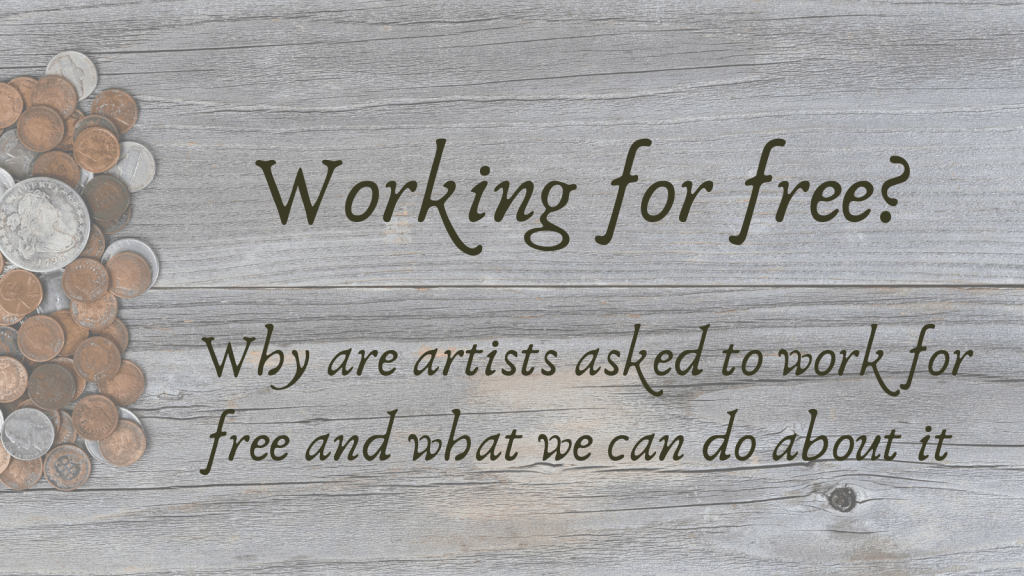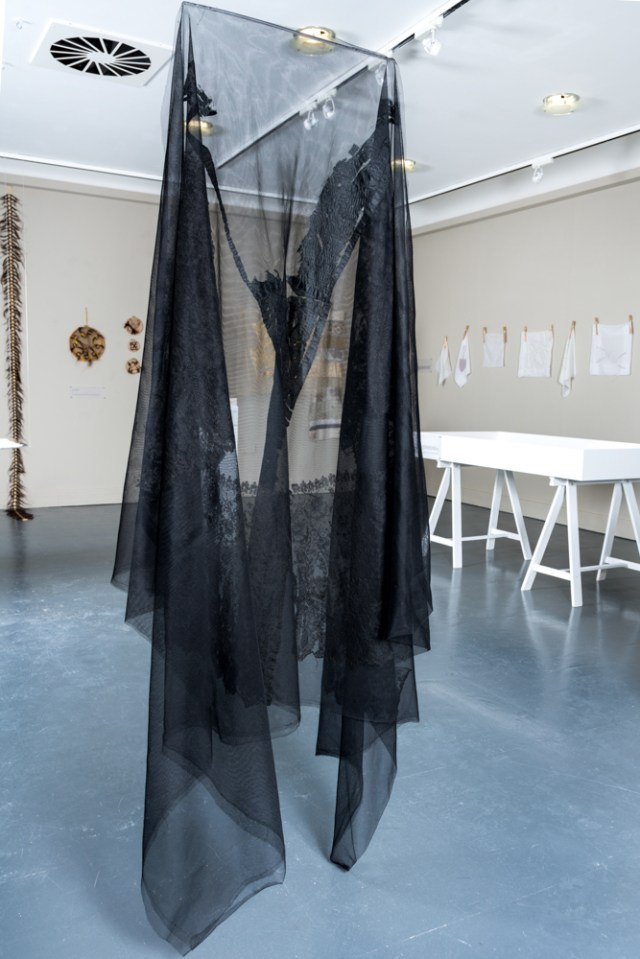Artists and freelancers regularly get asked to do unpaid work for organisations and institutions. In this blog post I discuss one of the common scenarios, share some thoughts on how things need to change and suggest some actions you can take.

Should I say yes to unpaid work?
This is a perennial complex problem for those of us working in the arts and one I regularly want to moan about. So instead I’m giving it some thought and offering some alternatives to approaching this thorny question. Opportunities to give away your artwork, time, expertise, knowledge, potential earnings and wellbeing are bountiful. The creative world is full of ways for you to not earn any money. Finding ways to do the opposite and make an income is one of the greatest challenges of creative practice.
There are some things in the sector that pop up again and again which involve working for free and I have been thinking a lot about about how to make these decisions for yourself and how to try and make changes in the sector so this happens less.
There is no one simple answer to whether or not you choose to work for free as it all depends on:
- where you are in your career
- what you are being asked to do for free
- your own financial situation
- the financial situation of the organisation offering the thing
- what else you might get out if it
The main thing to remember and to focus on is exposure does not pay the bills. Artists cannot live on goodwill. Those of us that have to make a living cannot keep being undercut by those who can afford to work for free. What ends up happening is those who need to earn a living say yes to unpaid things because it’s presented as ‘good for their career’ and they don’t have the confidence or leaderships skills to say no and why.
Choosing to work for free is a different thing – writing a speculative application, a proposal, responding to an open brief, donating work for a charity etc is a matter of choice. The problem really is when artists are asked to do work which really should be paid, such as running events, providing design or creative work or giving up their time & expertise to help a funded organisation do their job. It’s the latter I am focussing on here.

Over the 17 years I have been self employed, I have done plenty of unpaid work and I still chose to do some now, but only if I don’t feel exploited by the organisation and when it is otherwise beneficial for me. I choose not to work for free when it is mainly beneficial to an organisation with paid staff.
I do consultancy work for organisations on artist support and development activities as well as offering mentoring, training and business support to artists and creative businesses in partnership with organisations. Please get in touch if this is something your organisation would like to develop.
In the last few months I have been asked to be on a selection or jury panel for open exhibitions, both run by organisations with local authority funding support and salaried staff. With exquisite irony, this is exactly the thing I have been writing a report about for Artquest – for which I have been paid a professional consultancy fee. The report I’ve written is about artist Open Calls and making them more equitable and fair for artists. There’s a lot in this project about unpaid labour for artists, about paying fairly, about appreciating the value that artists and freelancers bring to an organisation, and paying them fairly for their work, including those on selection panels. So in both these cases, I have declined to do the work. In the first case I asked about fee as it was not mentioned and then declined in a vague way citing busy on the day. But more recently I’ve tackled the issue headlong and said why I can’t do the work for free, that I understand their budget restrictions etc and why it is important to value artists time.

In both cases I’ve felt vulnerable doing this and sad not to do the work – it’s something I would really enjoy doing, but I have to practice what I preach and not take on unpaid work in order to (hopefully) further my professional relationships with the organisations involved. That’s the issue I’m weighing in the balance every time I consider some unpaid work –
Will there be other benefits to me in doing this?
What is the non-financial value to me in this transaction?
Is there a value to me in this transaction at all or is all the value benefitting the organisation?
Why should I give up several hours of my potential income-generating time in order to benefit their open call exhibition? They are not charities. The people asking me have salaried jobs. Would they do it for free?

Its really important to remember that it’s not the fault of the person doing the asking, it’s the fault of the structures they work within who expect freelancers and artists to work for free. There is a pervasive culture of creatives working for free, an established, but unspoken rule that artists will do stuff for free because we need to further our careers and being helpful to organisations who are the gatekeepers of exhibitions and other forms of paid work is seen as necessary.
As a result of this culture of unpaid labour, it falls to me, as the unpaid artist, to explain to them, to pass on to their managers and budget-holders why they shouldn’t ask artists to work for free. If you value my professional expertise in this project, I deserve a professional fee.
I freely admit I didn’t know or think about this properly when I was employed by an organisation. I employed artists but I did expect them to travel across London and come to an unpaid meeting to discuss the 2 days of paid work. That’s not fair. I know that now and I point it out to organisations as often as I can, where they haven’t already addressed it (some have).
In conclusion, the most impactful thing we can all be doing about this is talking about it rather than hiding our frustrations and disappointments and letting bad practice continue unchallenged. We can sign up to campaigns like the brilliant Paying Artists. We can also make conscious choices about what we do for free, rather than just accepting it as the way things are. If you feel able to share, I would love to hear your thoughts about when you are asked to work for free and how you responded.
If you are struggling with this issue, I suggest starting with this: record all the unpaid work you do in a project or in the development stages of a project with an organisation. You may not do anything with this but it is so useful to have some data. If you feel able, you could share it with the organisation and just say “This is the amount of [additional] work I did unpaid in this project, if I was charging, this would be £££ value.” Making our unpaid work visible is a great first step in opening up the conversation.
This is the first in a series of blog posts tackling money issues around artist and freelance practice. I’ll be sharing more soon as this stuff is really important for us to talk about and for organisations to be aware of, and ideally, act upon. Please share this post or my social posts to try and get the message across. It would be great if you wanted to write your own post addressing some of the issues and how you approach working for free / getting paid for your professional expertise. I would also love to hear from organisations about what you are doing on this issue! You can get in touch with me here.


Artist Mentoring
If you are feeling a bit at sea with your creative practice, I’m here to help. I’ve created my mentoring programmes after years of working with and supporting artists and really understanding the challenges of creative life. I’m on your side to help you figure out the meanings and the reasons behind your creative practice and how to move forwards. Find out more here.

Let me know what you think